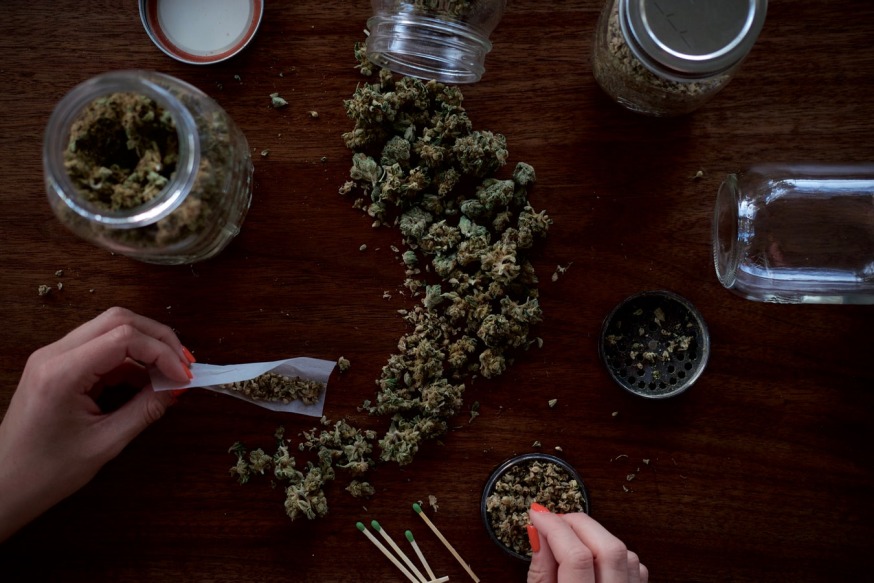
Photo: Unsplash
March 31, 2021 By Ryan Songalia
New York has become state number 15 to legalize recreational pot with Gov. Andrew Cuomo signing the “Marijuana Regulation and Taxation Act” into law this morning.
The bill cleared both the New York State Senate and Assembly yesterday, and Cuomo pledged last night that he would make it law.
“New York has a storied history of being the progressive capital of the nation, and this important legislation will once again carry on that legacy,” Cuomo said in a statement.
The new law allows New Yorkers 21 years of age and older to possess up to three ounces of marijuana, and to grow up to three mature marijuana plants at home per adult, and a total of six mature plants per household.
Smoking marijuana would be legal anywhere smoking tobacco is permitted.
The law also calls for the expungement of records and resentencing of anyone who had been convicted of possessing an amount of marijuana under the new legal limit.
A number of Queens legislators were among the bills’ sponsors in the Assembly and Senate, including Senators James Sanders Jr., John Liu, Michael Gianaris, Jessica Ramos and Leroy Comrie, and Assembly members David Weprin, Alicia Hyndman, Andrew Hevesi, Khaleel Anderson, Clyde Vanel, Jeffrion Aubry, Jessica Gonzalez-Rojas, Zohran Mamdani, Ron Kim, Catalina Cruz.
“Our action today begins to correct years of injustice in the name of the war on drugs,” Gianaris, the Senate Deputy Leader, said in a statement Tuesday. “This new law will also expunge criminal convictions for actions that will no longer be illegal and fairly address questions of equity, economic opportunity, and justice long-denied.”
Assembly member Gonzalez-Rojas, who represents Jackson Heights and surrounding areas, also issued a statement Tuesday evening.
“While this legislation won’t solve racism or over-policing in communities of color, it begins to right the wrongs of decades of unjust drug policies.
“This legislation will have great implications for racial justice and for social equity as it centers communities most harmed by the criminalization of marijuana.”
Gonzalez-Rojas cautions that some components of the legislation will “take some time to roll out,” but legalization of recreational use will begin immediately.
The legislation makes way for a legal marijuana market, which is expected to create tens of thousands of jobs and provide huge opportunities for companies that serve the industry.
The new law calls for the creation of an oversight body that will award 50 percent of the recreational marijuana business licenses for “social and economic equity applicants,” including minority and women-owned businesses.
New Yorkers are unlikely to be able to buy pot from retail dispensaries for at least a year.
The state could see upwards of an additional $436 million in tax revenue, while New York City is estimated to see an additional $336 million, according to the bill.
Legislators plan to dedicate 40 percent of the tax revenue to communities disproportionately impacted by the drug war, another 40 percent to schools and 20 percent toward drug treatment and prevention.
State Sen. Ramos highlighted the economic benefits of the bill, stating the MRTA will “help generate millions in revenue for our state and create thousands of much-needed jobs – establishing a new industry as we look for more ways to recover economically from this pandemic.”
One Comment

In these stressful times, plans to legalize marijuana makes sense. Consumption of marijuana for both medical and recreational use is part of main stream America, transcending generations.
Creative entrepreneurs will always provide the citizens’ desire, regardless of government approval. Consumers have voted with their dollars, making marijuana consumption a multibillion-dollar enterprise today. Legalize it and add a sales tax. Revenues will more than cover the costs of any abuse. Our tax dollars will be better used if police and judges spend more time prosecuting those who commit real crimes against individuals or property than going after those who consume or distribute marijuana.
Citizens have more to fear from murder, arson, rape, muggings, robberies, auto and identity theft or home break-ins than individuals who get high in the privacy of their own home. Law enforcement authorities should be free to pursue those who commit real crimes against citizens and property.
At 18, you are old enough to vote, be a parent, pay taxes, own a car, take out a bank loan, serve in the military and die for your country — but not consume marijuana. This makes no sense.
What consenting adults consume, inhale, perform, read or view in the privacy of their own home or private social club isn’t the concern of government. Individual economic and civil liberties prosper best when government stays out of both the bedroom and marketplace.
Let us hope that we have finally learned from the obvious failures of Prohibition. It is time to permit consenting adults to access any so-called illegal products or substances without fear from government harassment.
Larry Penner